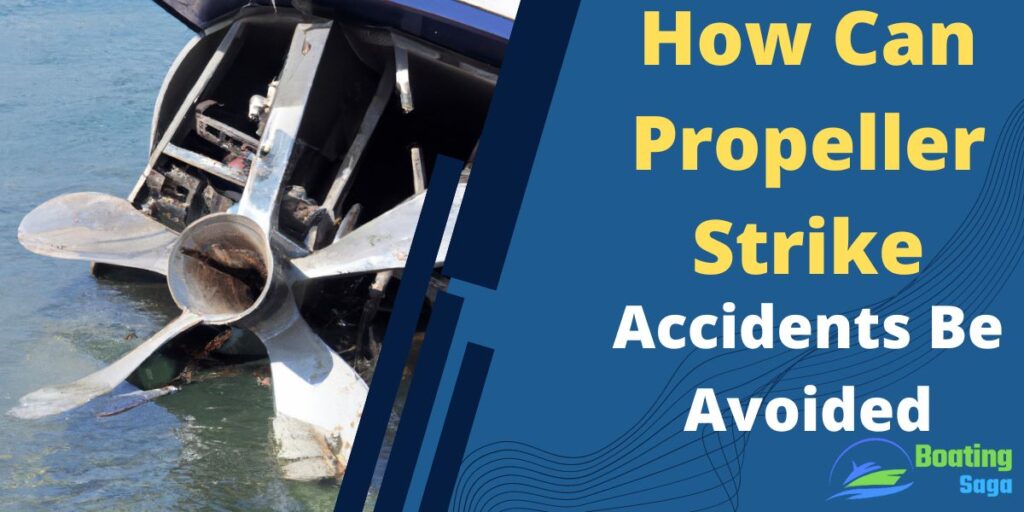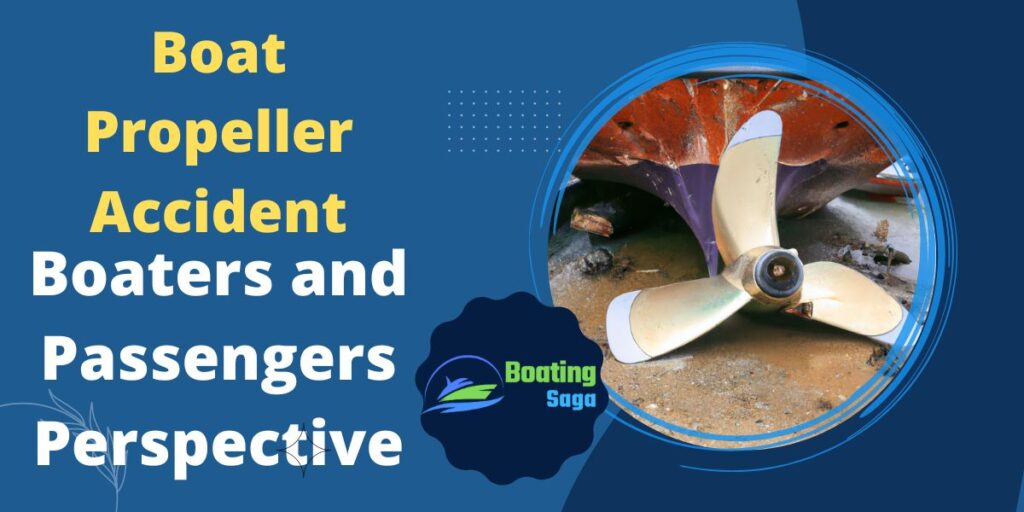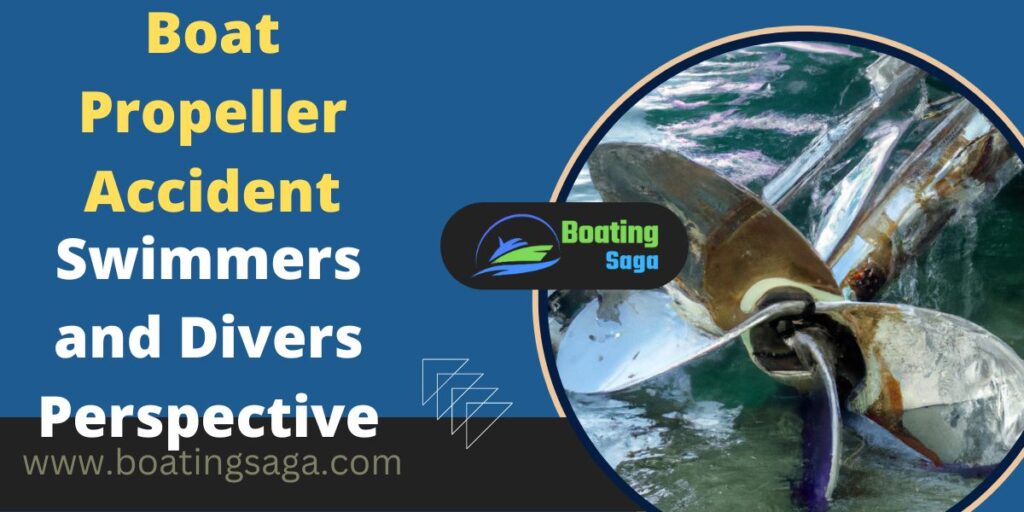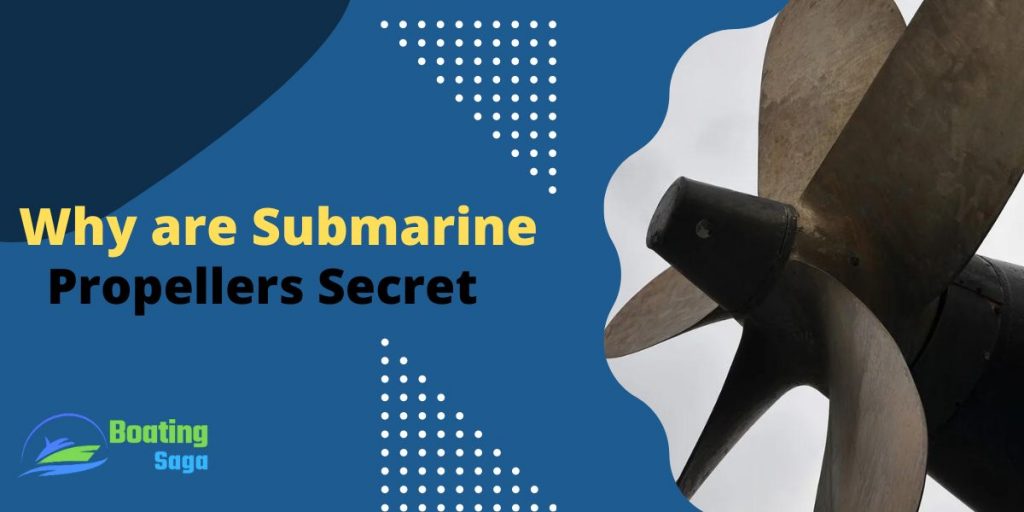
When operating a boat, safety should always be a priority. Unfortunately, accidents can happen, and one of the most common is known as a boat propeller strike. This type of accident occurs when an individual is struck by the rotating blades of a boat’s propeller while they are in the water around the vessel.
Boat propeller strikes can cause serious injuries ranging from cuts and lacerations to broken bones and even death.
In this article, we will discuss how they can be avoided.
Table of Contents
Boaters and Passengers Perspective:

- It is important to take necessary safety precautions when out on the water. One way to ensure your safety is to use a prop guard on your boat. This will help prevent any serious injuries if someone gets too close to the propeller.
- One of the best ways to avoid a boat propeller strike accident is to avoid making sudden sharp turns while in the water. When turning suddenly, it can be difficult to judge how far away other boats or swimmers may be and this could put them in danger of getting struck by a propeller.
- It is a good idea to wear a lifejacket at all times when out on a boat, as it can help keep you afloat in an emergency situation.
- One of the best ways to avoid boat propeller strike accidents is for all passengers to remain seated in the boat at all times. Not only does this reduce the risk of someone slipping overboard, but it also reduces the risk that a passenger may accidentally enter the area where the propeller is located.
- Be sure to keep an eye out for other boats and respect their space as well, by avoiding dangerously close proximity.
- Swimmers should never be allowed to swim near a boat, as this could put them at risk of injury from the boat’s propeller. You should also check the props nut which should be properly tightened all the time.
- Boaters should always be aware of their surroundings and take extra care when navigating through areas with high levels of boat traffic or low visibility.
- It is important to always obey local boating laws and regulations and be aware of the speed limits in specific areas.
- A kill switch should also be used at all times when operating a boat, as it will stop the propeller from spinning and reduce the risk of any serious injuries occurring.
- Ensure that the boat is traveling slowly in areas with increased traffic or known hazards, such as shallow waters or other vessels.
- Visibility is key; avoid boating at night will reduce the risk of injury as it is much harder for boat operators to see you in the dark.
Swimmers and Divers Perspective:

- It is wise to wear brightly colored clothing when near a body of water as this can help alert drivers of your presence.
- It is essential to stay in designated swimming areas, away from motorized boats and jet skis – this will reduce the chances of a collision.
- Stay clear of the pathways that boats use, as it can be difficult for them to see you, especially if they are travelling fast.
- Swimmers and divers should also pay attention to any posted signs warning of high-traffic areas or other potential hazards.
- Its better for swimmers and divers who should always swim or dive in groups with designated individuals responsible for keeping an eye out for approaching vessels.
You can read related articles: Why Many People Think Ship or Boat Propellers Scary
Frequently Asked Questions:
1. If I See a Boat Propeller Strike Accident Take Place, What Should I Do?
If you are out on the water and witness a boat propeller strike accident, it is important to take quick action to help those involved.
The best course of action is to call 911 right away so that medical help can be sent as soon as possible. Additionally, it is imperative to move the injured person away from the boat propeller and any other objects that could cause further injury or harm.
2. What is One Cause of Propeller Strike Accidents?
Carelessness is one major cause of boat propeller strike accidents, especially when people fail to wear life jackets or jump from boats without checking for obstacles and underwater changes in depth. It’s essential for boaters to remain aware at all times and use common sense when it comes to their safety on the water. Boaters should never swim near moving boats and should always be sure that everyone on board wears a life jacket while they’re out on the lake, river or ocean.
3. Are there any safety features or gears that I should add to my watercraft?
Before setting off on your next boating expedition, add some of the following safety features or gears to your watercraft: life jackets, distress signals such as flares or a marine radio, fire extinguishers, navigation lights and anchors.
Additionally, make sure all passengers know how to swim and take a first aid kit with you when you go out on the water. It is also essential that you have knowledge about boat operation laws and regulations before taking off.
4. May I be aware of any applicable laws and regulations for boating in my area?
It’s important to take some time before your trip to research any state or local boating laws that may be applicable in your area. Rules surrounding speed limits, navigational restrictions, registration requirements, and more vary from region to region.
Some states require boat operators to pass a safety course prior to taking their vessel out on the open water; others require all vessels over a certain size or powered by motor engines of a certain horsepower must display proper registration numbers at all times while in use.
5. What are the most important safety guidelines for boating?
The most important safety guideline for boating is to always wear a life jacket while on board or in the water. All passengers should be wearing their life jackets at all times and they should fit properly to ensure that it can provide adequate protection in case of an emergency.
Additionally, it’s important to have a communication device such as a cellphone or VHF radio on board so that help can be summoned quickly if needed.
Conclusion
Boating safety is of the utmost importance for boat owners and passengers. Boat propeller strike accidents can be avoided with the right preventive measures and safe boating practices. Maintaining a safe speed, keeping a proper lookout and wearing personal flotation devices are all important aspects of preventing such incidents.
Furthermore, boat owners should always ensure that their propellers are high quality which matches with its respective engine as well as in good working order prior to setting sail. With the right knowledge and preparation, boating can be an enjoyable activity.


